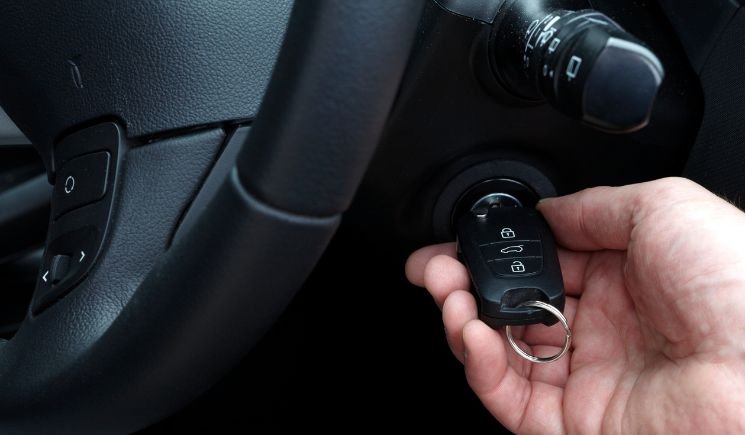Let’s imagine this: You hop into your Nissan Altima, press the start button and… silence. The engine won’t crank over at all. You pump the brake pedal and feel significant stiffness and resistance. This combo of symptoms likely spells big trouble for your braking and starting systems.
This comprehensive guide will examine the intricacies behind a Nissan Altima refusing to start with an accompanying firm, spongy brake pedal. After reading this guide, you’ll gain critical insight into the vital interrelationship between proper brake system pressure and the shift interlock release that allows starting the vehicle.
We’ll systematically cover failure points like leaking brake master cylinders, stuck callipers, collapsed brake hoses, and depleted hydraulic fluid levels that can simultaneously manifest as a no-start condition and impaired brake pedal feel. Whether the issues began gradually or suddenly, precise diagnoses and proper repairs will have you safely stopping and starting your Altima again.
Potential Causes Of A Nissan Altima Not Starting And Having A Stiff Brake Pedal
Leaking brake master cylinder
- The master cylinder converts pedal force into hydraulic pressure for braking action.
- External leaks indicate failing seals and allow air ingestion that leads to a stiff pedal and prevents proper pressure release from shifting out of the Park.
Stuck brake caliper piston
- If a calliper piston sticks and does not retract fully, it maintains constant pressure on the pads dragging on the rotor.
- This gradual seizure stiffens the pedal and forces the hydraulic system by preventing the startup.
Depleted brake fluid level
- Insufficient brake fluid from a leak or boilover can allow air into the lines.
- The spongy pedal and inability to shift out of Park stems from the low fluid by letting air infiltrate the system.
Brake line failure
- Corroded brake hard lines, cracked rubber hoses, and separated fittings cause a complete or gradual loss of hydraulic pressure.
- No or low pressure keeps the pedal stiff by leaving the driver stranded with a vehicle that does not start.
Faulty brake light switch
- The pedal-actuated stop light switch can stick continuously by telling the transmission that the brakes are permanently active.
Solutions For A Nissan Altima That Won’t Start And Has A Stiff Brake Pedal
Test master cylinder operation
- Check the master cylinder bore operation and confirm that no external fluid leaks are indicating any failures.
- Replace the master cylinder assembly if it is faulty or leaking.
Inspect the calliper piston condition
- Move and monitor the calliper piston to ensure full retraction is onboard.
- If seized, disassemble the calliper for rebuilding or replacement to restore sliding action; you may also need to lubricate calliper pins if necessary.
Evaluate brake fluid level and condition
- Brake fluid should be at the max line on the reservoir.
- Add fresh DOT3 or any kind of related fluid to reach the level and bleed the system if it is low. Also, replace if the fluid is extremely dirty.
Examine brake lines and hoses
- Methodically check for cracked, swollen or corroded brake hard lines and flexible hoses.
- Replace any damaged sections and hoses to restore integrity.
Adjust or replace the brake light switch
- The brake pedal switch should click off when the pedal is released.
- Adjust or replace the switch if it stays on continuously due to misalignment.
Flush hydraulic system
- Flushing the brake hydraulic system and components for general stiffness eliminates accumulated debris and oxidation.
- Doing so will restore a smooth pedal response.
Address fluid leaks
- Closely inspect all fittings, line connections, seals and hydraulic components for slight leaks, which allows air ingress.
- Tight the connections and replace leaking parts if necessary.
Consult the factory service manual
- Follow all prescribed diagnostic and repair steps for simultaneous no-start and brake pedal issues outlined in your Altima’s factory information if you have any issues while working on the problem.
Frequently Asked Questions About Nissan Altima Not Starting Brake Pedal Stiff
Q: Is it safe to pump the brakes if the pedal is stiff and the engine won’t start?
A: No, pumping could further damage brake components. Safely tow the vehicle for repair. Do not drive the Altima if braking capability is compromised.
Q: Is a brake pedal that starts stiff but sinks halfway normal for braking?
A: No significant stiffness followed by a spongy pedal indicates air in the lines or leaks. The pedal should be firm and consistent in its pressure response.
Q: Can a dealership mechanic override the interlock temporarily if repairs takes days to complete?
A: Yes, most technicians can apply a manual release to bypass the shift interlock as a short-term solution until the complete brake repair is over.
Q: If my Nissan won’t start and has pedal issues, is it safe to press the brakes hard to bleed the system?
A: With braking function impaired, pumping the pedal harshly risks complete failure. Safely tow the Altima and avoid driving it in this condition until a complete hydraulic system diagnosis is in action and repairs are over.
Q: Why does the shift interlock prevent gear selection when the brake pedal has pressure problems?
A: The interlock is a safety mechanism requiring proper hydraulic pressure release to allow shifting – the lack of pressure keeps it triggered, blocking gear selection to prevent the vehicle from starting.

